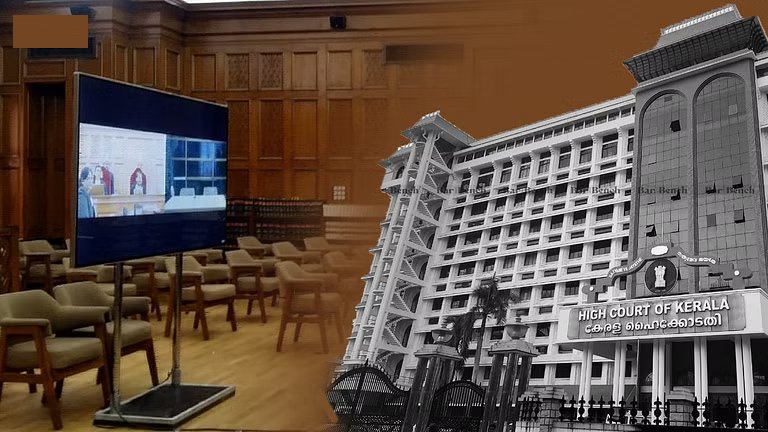Published on :
Kerala: The Kerala High Court recently held that the examination of witnesses via video conference is permitted under the Electronic Video Linkage Rules for Courts (Kerala), 2021 (2021 Rules) and it does not affect the rights of the accused person [Gopal C v Central Bureau of Investigation].
Justice A Badharudeen said that the whole purpose of the Rules is to allow examination of witnesses who cannot be present physically, so as to avoid delay in disposing of the case or other expenses.
“Since the purpose of enactment of Electronic Video Linkage Rules for Courts (Kerala), 2021 itself is to examine the witnesses whose presence could not be secure without undue delay or expenses and for other reasons stated in Rule 8(23), .. In fact, the examination of the witness either through physical mode or through video linkage, the same makes no difference as far as the right of the accused to cross-examine the witness is concerned,” the Court said.
The Court added that Rules also allow a party or his authorized person to be present at a remote point during the time of recording the evidence, if he so desires, though he has to make the arrangements at his own cost.
“That apart, it is worthwhile to note that the framers of the Rules even visualized the argument of this nature while implementing the Rules and they vigilantly implemented Rule 8(24) and the said provision provides that subject to the orders of the Court, if any party or his authorized person is desirous of being physically present at the Remote Point at the time of recording of the evidence, it shall be open for such party to make arrangements at his own cost. If so, the dread of persuasion of the petitioner could be addressed by resorting to Rule 8(24), subject to the orders of the Court,” the Court added.
The Court was considering a case filed by an accused person in a 2012 case challenging the order of a special court that allowed a witness to appear online/ virtually for examination.
The public prosecutor representing the Central Bureau of Investigation (CBI) had filed an application before the special court seeking examination of the defacto complainant who is the first witness in the case, through video conference.
The reason cited was that the first witness was working in Dubai and his physical presence for examination could not be secured without delay or expenses.
The counsel for the petitioner argued that for the trial to proceed effectively, the witness must be present physically so as to ascertain the demeanor and approach of the witness.
To protect the interest of the accused, the physical presence of the de facto complainant is imperative, it was further submitted.
The Deputy Solicitor General of India (DSGI) strongly opposed the contentions of the petitioner on the ground that the 2021 Rules allow the physical presence of witnesses under every circumstance.
The Court noted that Rule 8(25) of the said Rules allows witness examination through video conference.
The same treated to be in compliance with the provisions of the Code of Criminal Procedure (CrPC), Criminal Rules of Practice of Kerala and Civil Rules of Practice of Kerala or any other law which requires personal appearance of parties, witnesses or any other person for the purpose of any enquiry, trial or any other proceedings in subordinate courts and tribunals.
Moreover, the Court noted that Rule 8(23), stipulates that may authorize the conduct of the proceedings through video conference from the place where the required person is situated if such person’s presence cannot be secured without undue delay or expenses, or for any other genuine reason.
Therefore, the High Court refused to interfere with the order of the special judge that permitted the examination of the de facto complainant through video conferencing
The accused person was represented by advocates Vinod Vallikappen.
The respondents were represented by Senior Public Prosecutor Rekha K.



